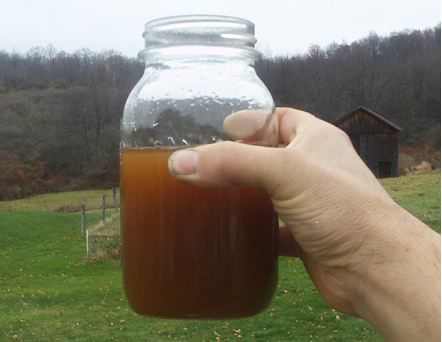Can Fracking Ever Be Done Safely?
September 21, 2012New York State Plans Health Review as It Weighs Gas Drilling
September 24, 2012The company is using hydraulic fracturing technology to drill three wells in Egypt’s Western Desert, in the Alam El Shawish West concession. Concerned that scarce water resources will be poisoned, the Egyptian Initiative for Personal Rights (EIPR) has condemned the introduction of fracking to Egypt and demanded an immediate moratorium.
Fracking faces global opposition for its use of toxic and carcinogenic chemicals which seep into the groundwater, climate change impacts and its role in causing earthquakes (e.g. England and the US – as high as 4.0 on the Richter scale). As a result, the technology is currently banned or under moratorium in countries and states including France, Bulgaria, New York and Vermont.
Shell itself is already under fire for its fracking operations & plans in South Africa, Pennsylvania and New Mexico – for contaminating drinking water, applying heavy pressure to local politics and lobbying aggressively. In South Africa, the company ran misleading adverts to cover up the impacts of fracking – leading the Advertising Standards Authority to demand that their removal.
Back in Egypt, despite Shell having fracked at least one of its wells at Alam El Shawish West, the Egyptian Agency for Environmental Affairs says it has yet to receive Shell’s environmental impact assessment for the fracking operation – a necessary precondition for any drilling. Local freshwater aquifers are being placed at risk by Shell’s drive to accelerate extraction rates.
Reem Labib, EIPR‘s Environmental Justice Researcher, explained that: “Fracking threatens Egypt’s drinking water, but Shell and Dana’s drilling is mired in secrecy. We don’t know the ingredients in the toxic cocktail used, where they plan to source water from, or how the poisonous slurry will be disposed of. The government hasn’t published any regulations specific to fracking, the local geological conditions, or how and whether it will monitor and evaluate the impacts of fracking.”
Further investigation reveals that Shell aren’t the first to frack in Egypt. As well as US-based Apache, Dana Gas are fracking in the Nile Valley itself. The West Al-Baraka-2 well is near Kom Ombo in southern Egypt – just downstream of the Aswan Dam. Leakage of the toxic fracking cocktail could result in poisonous chemicals flowing into the Nile – threatening the lives and livelihoods of the 70 million people who are clustered along the river downstream.
In a brief released today (in Arabic), EIPR outlines how fracking operations threaten water resources critical to Egypt’s wellbeing. Fracking near Kom Ombo raises fears that toxic chemicals could leak into the Nile, threatening the lives and livelihoods of those downriver. While the Western Desert contains essential aquifer systems of fresh groundwater on which all agriculture by the inhabitants of the western oases depend. While groundwater contamination is the most immediate threat of fracking, it also uses major quantities of water: Fracking a single well uses more than an Egyptian consumes across 35-52 years.
There are currently no specific rules and regulations governing the use of fracking in Egypt. EIPR has called on the Egyptian government to place an immediate moratorium on fracking, at the very least until appropriate regulation has been developed and comprehensive independent scientific studies have assessed the potential effects based on local geology, including the possibility of fracking chemicals leaking into the groundwater. The organisation has also calls on Shell, Dana Petroleum, Apache and any other companies that frack to publish the chemical components used and processes of treatment and disposal.



